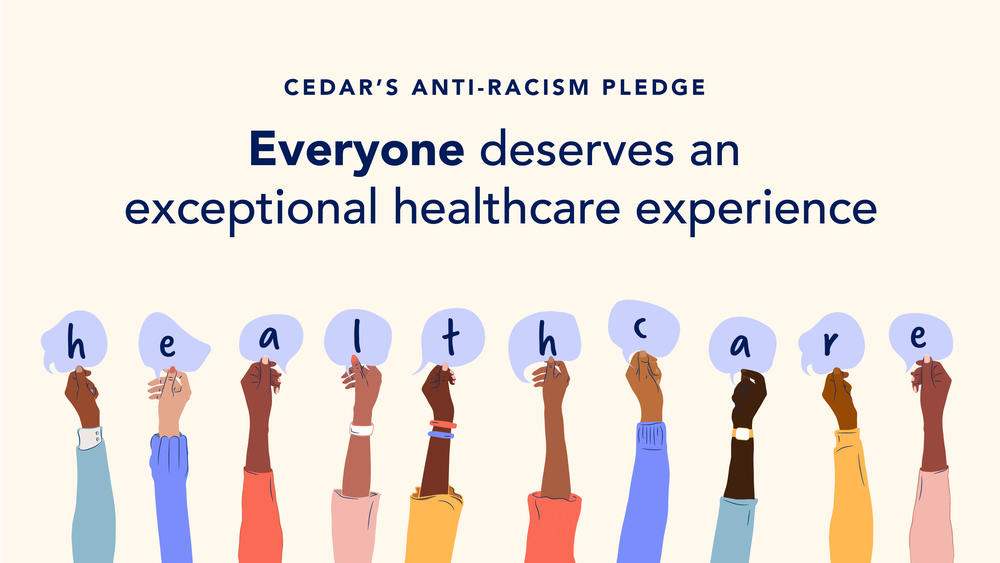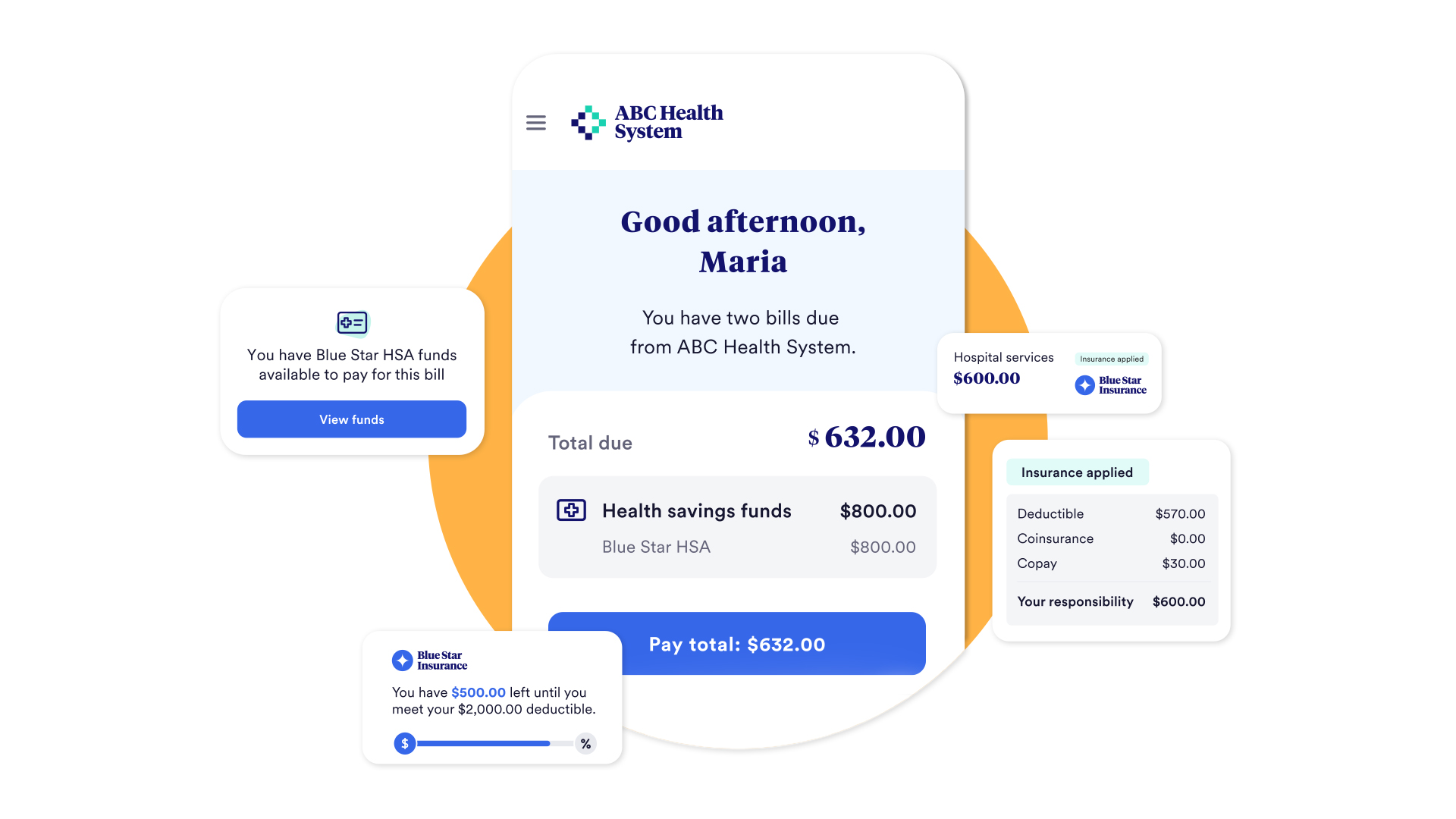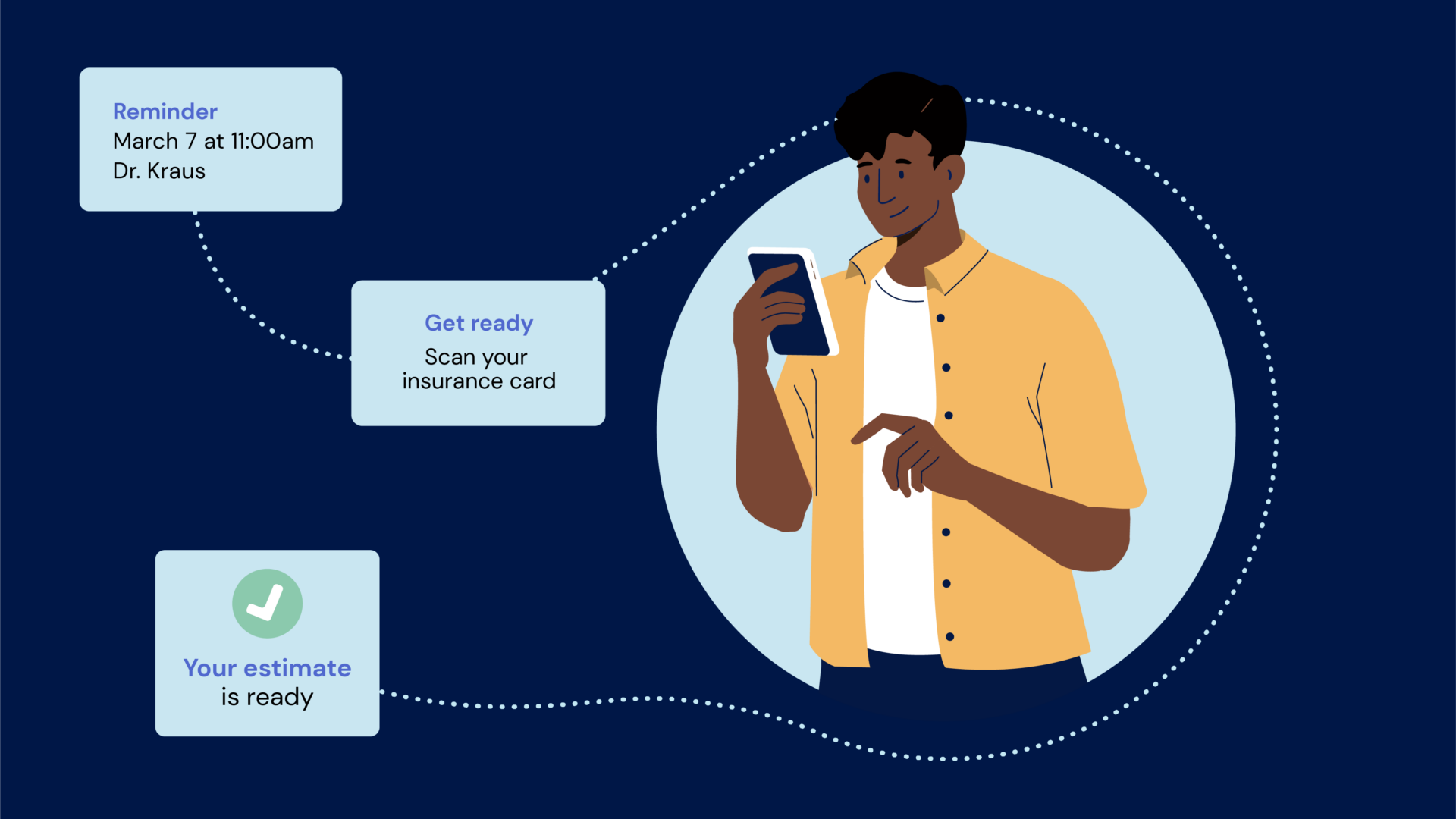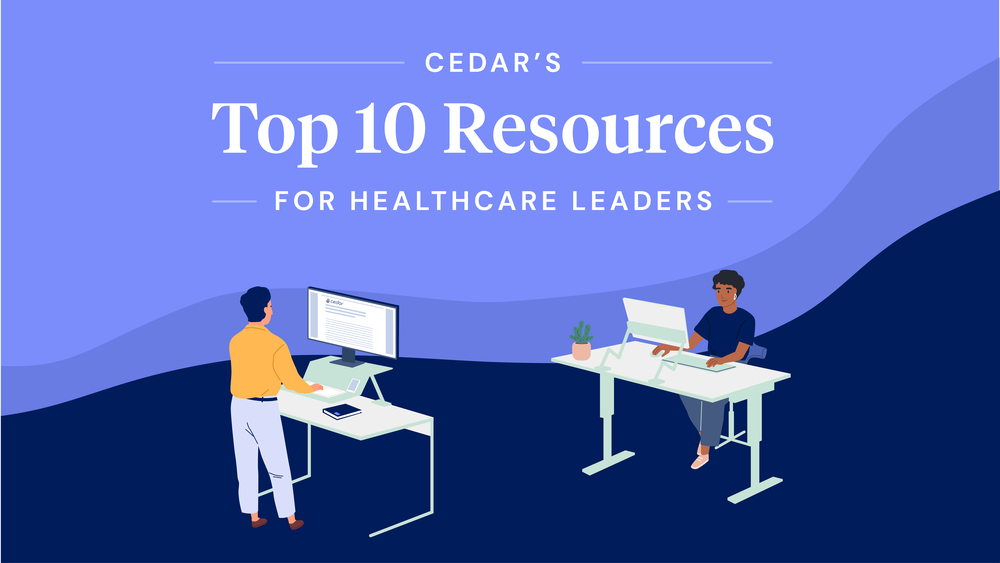In healthcare, your background, life experiences and race shape the care you receive. This isn’t always easy to see. People may be able to spot a blatant individual act of racism, but systemic racism is both harder to identify and harder to address since it affects all levels of society, such as education, employment, economics, law enforcement—and most certainly healthcare, where negative outcomes are literally a matter of life or death.
We know a traditional “one-size-fits-all” approach to care doesn’t work. Instead, it leads to glaring inequities and industry-wide problems. And in the U.S, the pandemic has only amplified these problems for patients and healthcare consumers.
At Cedar, we believe everyone deserves exceptional, affordable care. This mission is why our company exists. When I co-founded Cedar in 2016, we were a much smaller company, trying to find our way while making a difference in healthcare. Five years later, we’ve grown significantly, expanding the scope of our mission, products and teams. With that growth comes a greater responsibility to serve.
It’s something I’m passionate about on a personal level. Even though I understand our work will never be done, I’m energized by the challenge, as are my colleagues. We want to do what it takes to become an even better company, and we are more determined than ever to help combat racism in our healthcare system.
Now, after many important internal discussions over the past year, we’ve decided to officially release Cedar’s Anti-Racism Pledge to begin addressing these systemic issues. As part of our commitment, we’re taking action—both internally and externally—to contribute to a more equitable healthcare system. Our team is devoted to this pledge and committed to doing the work to get it right. We’re in this for the long haul, and we’ll refine our approach over time to maintain the highest standards of integrity.
The implications of racism in healthcare
Before we talk about solutions, it’s important to acknowledge the specific problems that stem from racism in healthcare.
For instance, in U.S. maternity care, Black women have a risk of death more than three times higher than their white peers, regardless of education level or socioeconomic status. (For Black women over 30, the risk is more than five times higher.)
Studies have also shown that Black Americans are 30% more likely to die from heart disease than whites. The rates of diabetes are significantly higher as well: Black Americans are nearly twice as likely as white adults to develop type 2 diabetes, and the racial disparity has increased over the past few decades.
Risk factors include lower levels of education, higher poverty rates and cost barriers to high-quality health care. Additionally, Black Americans suffer greater financial harm from the healthcare system with higher out-of-pocket spending, higher medical debt and contact with collections agencies.
No matter the context, anti-Black racism, rooted in America’s history of slavery and Jim Crow, continues to hurt Black individuals at every step of the healthcare journey, including:
- Reduced healthcare coverage: uninsured rate among Black Americans remains nearly double that of white Americans (9.7% vs 5.4%).
- Poor affordability: the average share of household income spent on healthcare premiums is 20% for Black Americans compared to 11% overall.
- Reduced access: majority Black American and Hispanic neighborhoods have less access to primary care and healthcare utilization.
- Worse care delivered: Black Americans receive worse healthcare across a broad set of measures and less dedicated resources
- Poor outcomes: Black Americans have greater morbidity and mortality for a wide range of common conditions than the general population.
These grim outcomes are unacceptable, and they need to be addressed with deliberate action.
What this pledge means for Cedar
Leading the way for a more equitable healthcare system starts with building a more diverse Cedar. We may not be the biggest company with the biggest budget, but we can still stand up for our Black colleagues and make sure we’re constantly improving.
Earlier this year, we launched BE@Cedar, our employee resource group dedicated to supporting and advocating for BiPOC Cedarians. Members of BE@Cedar, along with our other ERGs, deserve immense credit for helping this pledge become a reality. They championed diversity, equity and inclusion efforts that will make Cedar a better workplace.
That begins with hiring. And in addition to proactively improving our hiring practices, we’re also focused on setting people up to succeed once they are part of our team, with performance recognition and promotions. We’re committed to creating a culture of belonging, acceptance, and trust.
Our goals include:
- Attracting Black job candidates who view Cedar as a place where they can thrive and receive equitable pay
- Identifying talented people wherever they may live, with a range of educational backgrounds and work experiences
- Empowering Black employees through initiatives like our internal mentorship program so they feel supported at work
- Providing a culture where Black people thrive and are promoted fairly based on their contributions
For Cedar to maximize our impact on this pledge, we’re also committed to improving both our product and business partnerships. That way, we’ll deliver the kind of best-in-class experience we seek for all patients, no matter who they are.
On the product side:
Historically, the healthcare system has changed slowly. But as digital adoption increases, we have an opportunity to help people with more urgency. So we’re working to understand the impact of our software on racial inequality in healthcare finance and correct it.
In our business partnerships:
We expect our vendors—including agencies, consultants, technology partnerships and other business support functions—to exemplify a commitment to DE&I through their company policies and staffing models.
It’s important to note that our initial focus on Black Americans does not dilute our commitment and ongoing efforts to support others (such as LGBTQIA+ individuals). Rather, this is a recognition of the unique harm of anti-Black racism and what Cedar can do to eradicate it.
We know we have a lot of work to do, but complacency is not an option. This is just the first part of our plan, and we favor progress over perfection. We’ll hold ourselves accountable by sharing updates throughout 2022, so stay tuned for more.



